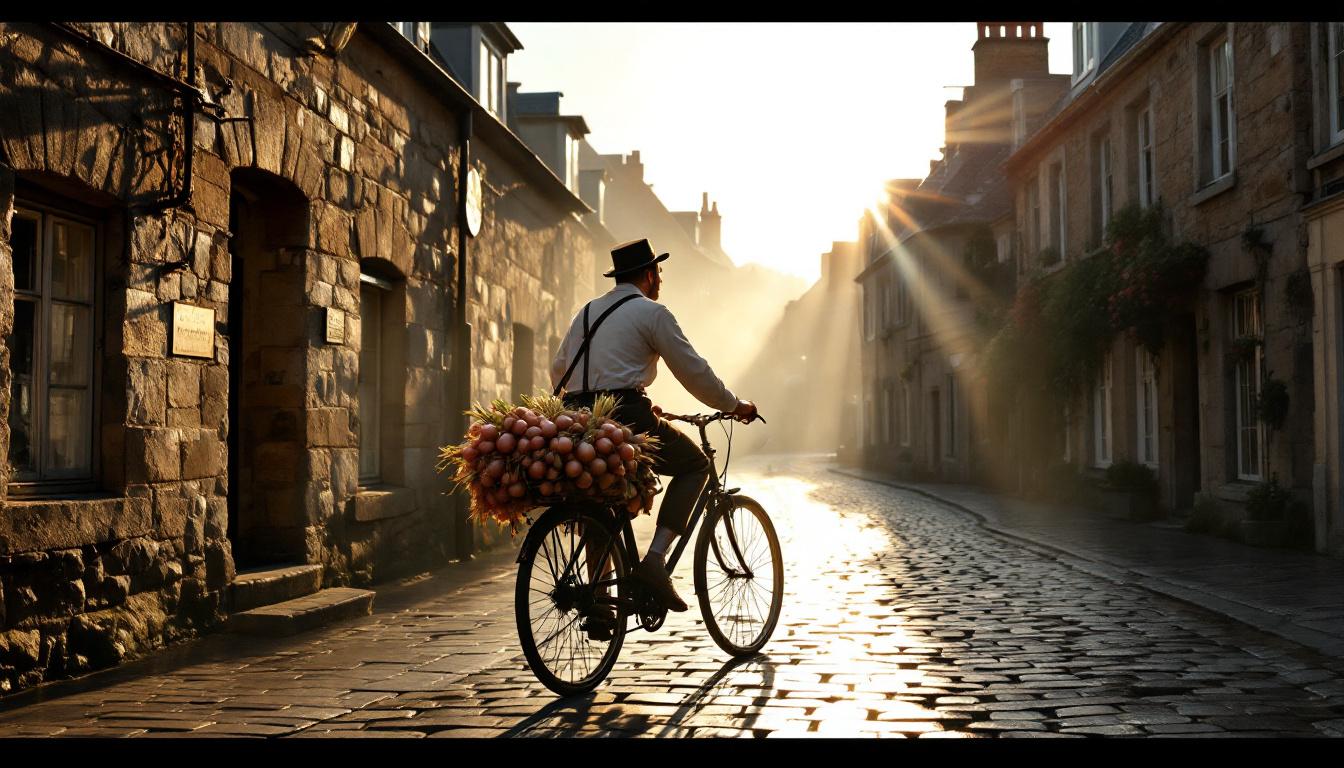Most travelers rush through Roscoff as just another ferry port, but this Breton gem on France’s northern coast deserves so much more than a passing glance. With its weathered granite buildings and seafaring heritage, this historic harbor town offers an authentic slice of Brittany that rewards those who linger.
The pink onion legacy that sparked a cultural phenomenon
Roscoff’s identity is inextricably linked to its famous pink onions. These AOC-certified alliums became so renowned that local farmers, known as “Onion Johnnies,” would sail to England with strings of onions draped over their bicycles, selling door-to-door throughout Britain. The tradition became so emblematic that it shaped Anglo-French relations for generations.
“The Onion Johnnies were Brittany’s first international entrepreneurs,” explains Marcel Divanac’h, curator at the Maison des Johnnies et de l’Oignon de Roscoff. “Their story represents the resilience and ingenuity of our maritime community.”
Architecture that tells stories of seafaring wealth
Walking Roscoff’s cobbled streets reveals a trove of 16th-century granite buildings with ornate dormer windows and intricate carvings—testaments to the prosperity of merchant sailors who built fortunes through maritime trade. The flamboyant Gothic church of Notre-Dame de Croaz Batz stands as the crown jewel, its Renaissance bell tower visible from across the harbor.
A microclimate that nurtures exotic treasures
Roscoff’s mild maritime climate creates conditions where palm trees and exotic plants thrive alongside traditional Breton vegetation. A short ferry hop takes you to the Île de Batz, home to the remarkable Jardin Exotique, where over 3,500 species from five continents flourish in what should be an impossible northern location.
Like this botanical anomaly, I’ve discovered other unexpected paradises during my travels, including a hidden jungle sanctuary I stumbled upon during a border crossing delay—proving again that unplanned detours often yield the richest discoveries.
Seafood straight from boat to plate
Roscoff’s cuisine centers around ultra-fresh seafood harvested daily from surrounding waters. The town’s restaurants specialize in simple preparations that showcase the natural flavors of oysters, scallops, and lobster, often accompanied by local vegetables and the region’s famous butter.
When you eat seafood in Roscoff, you’re tasting the ocean as it should be—pure, fresh, and treated with respect. Our cooking philosophy is about revealing nature’s flavors, not masking them.
This culinary authenticity mirrors what I experienced in Honduras’ fortress town, where genuine Caribbean cuisine comes without Cartagena’s tourist markups.
The hidden coastal path known only to locals
While tourists cluster around the harbor, locals slip away to the GR 34 coastal path that winds along dramatic cliffs and secluded coves. The section running west of town offers spectacular views across to the Île de Batz, with hidden beaches that remain empty even in high summer.
This preference for authentic experiences over crowded hotspots reminds me of the Thai island I discovered that offers genuine cultural immersion with 40% fewer tourists than Phi Phi.
A wellness tradition born from the sea
Long before “wellness tourism” became trendy, Roscoff pioneered thalassotherapy—using seawater, seaweed, and sea air for therapeutic purposes. The town’s thalasso centers draw visitors seeking natural treatments in a setting where the healing power of the ocean has been recognized for centuries.
This ancient connection between nature and wellbeing echoes what I found at France’s hidden thermal village with 2,600 years of wellness history.
The perfect day trip most ferry passengers miss
Just as I discovered a Greek island just 26km from Athens that’s better than Santorini, visitors to Brittany often overlook the perfect day trip: Roscoff to Île de Batz. The 15-minute ferry crossing transports you to a car-free island with pristine beaches, rolling countryside, and a lighthouse offering panoramic views across the English Channel.
Roscoff embodies the soul of Brittany—a place where granite and sea have shaped not just the landscape but the character of its people. In a region famous for its wild coastlines and Celtic heritage, this small harbor town offers perhaps the most authentic glimpse into the Breton spirit: resilient, independent, and profoundly connected to the sea that has both challenged and sustained it for centuries.
